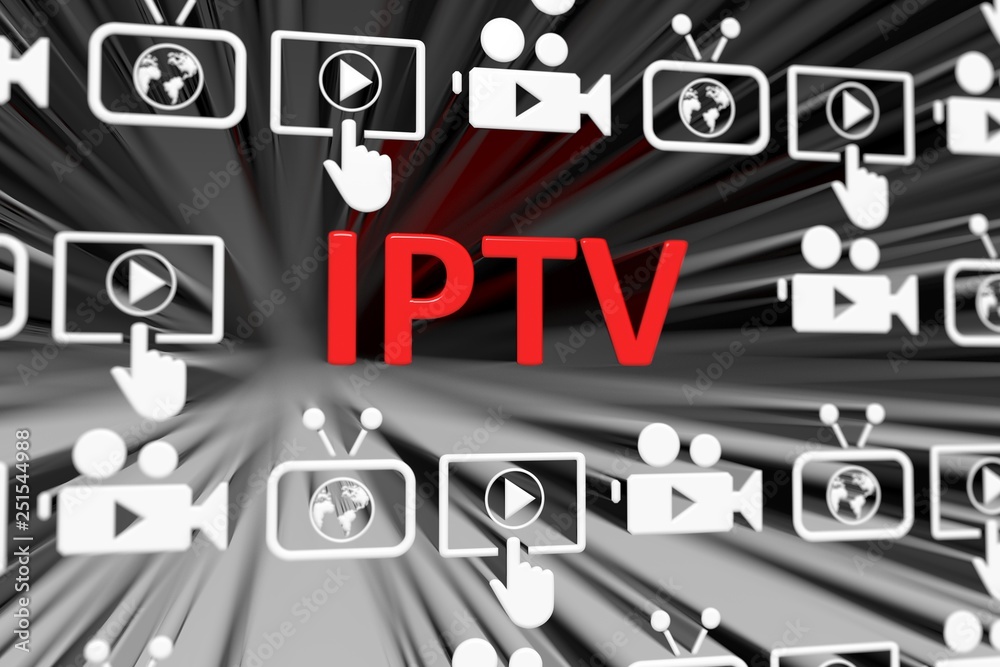In recent years, Internet Protocol Television (IPTV) has emerged as one of the most popular methods of consuming television content. As consumers move away from traditional cable and satellite TV, IPTV has become the go-to option for streaming everything from live television to on-demand movies and shows. However, along with the rapid growth of IPTV, questions have arisen about the legality of certain IPTV services and how to ensure that you’re using a legitimate and legal IPTV provider.
In this article, we’ll explore the ins and outs of IPTV, explain its legality, discuss the different types of IPTV services, and guide you on how to access legal IPTV in Canada and the United States. We’ll also address the risks associated with illegal IPTV services and offer tips on how to find a legal and reliable IPTV service in your region.
What is IPTV?
IPTV stands for Internet Protocol Television, which is a technology that allows users to watch television programming through the internet, rather than relying on traditional methods like satellite or cable TV. Unlike traditional TV, which is delivered through coaxial cables, satellite signals, or over-the-air transmission, IPTV transmits the signal over a broadband internet connection.
There are several key components involved in the functioning of IPTV:
- IP-based transmission: IPTV uses the same internet infrastructure that supports websites, email, and other online services. It requires an internet connection, usually broadband, to stream content.
- Video on demand (VOD): IPTV allows users to access a vast library of video content, from movies and TV shows to documentaries, with the ability to watch whenever they choose.
- Live TV: Similar to traditional cable TV, IPTV offers live channels, including news, sports, and entertainment broadcasts.
- Time-shifted TV: IPTV gives users the ability to pause, rewind, or fast-forward through content, providing a greater level of control over viewing.
- Interactive TV: IPTV can integrate interactive features like voting, on-screen graphics, and even gaming, enhancing the user experience.
Types of IPTV Services
IPTV is a broad term that encompasses several types of services, each catering to different user preferences and needs. These services can be divided into three main categories:
- Live IPTV: This type of service delivers live television channels directly to your device. It allows you to stream real-time broadcasts of news, sports, entertainment, and more. It works similarly to traditional cable TV, but with the added flexibility of streaming over the internet. Popular live IPTV services include YouTube TV, Sling TV, and Hulu + Live TV.
- On-Demand IPTV: IPTV on-demand services allow users to access movies, TV shows, and other video content at their convenience. Platforms like Netflix, Amazon Prime Video, and Disney+ fall under this category. These services typically offer an extensive catalog of content, and users can watch at any time, as long as they have an internet connection.
- Time-shifted IPTV: This type of IPTV service allows users to record live television programs and watch them at a later time. It provides users with the flexibility to pause, rewind, or fast-forward through programming. Many traditional IPTV services offer this feature as part of their package.
- Hybrid IPTV: Some IPTV services combine traditional satellite or cable TV with internet-based content. Hybrid IPTV allows users to access both types of content seamlessly. For example, services like AT&T TV Now and FuboTV offer a mix of live TV channels and on-demand video.
How Does IPTV Work?
IPTV works by delivering television content through an internet connection. It uses the Internet Protocol (IP) to transmit digital signals, which means the content is encoded and sent over the internet, rather than through traditional broadcast methods. The process of IPTV transmission can be broken down into several steps:
- Content preparation: Content providers capture and convert television programming into a digital format. This is then encoded into a form suitable for internet transmission.
- Transmission: The encoded content is transmitted to users’ devices via high-speed internet. The data is sent in the form of compressed video streams, which are decoded by the user’s device.
- Content delivery: The content is delivered to an IPTV server, which acts as a middleware between the provider and the consumer. The server processes the data and ensures smooth delivery to the user’s device.
- Playback: The user’s device (such as a smart TV, laptop, or smartphone) decodes the incoming video stream and plays it back for viewing. This could be live television or on-demand content, depending on the user’s choice.
IPTV vs. Traditional TV: A Comparison
When compared to traditional television services like cable and satellite, IPTV offers several advantages:
- Flexibility: IPTV allows users to watch content at their convenience. On-demand services mean you can choose what to watch, when to watch it, and how to watch it.
- Cost-effectiveness: Many IPTV services are more affordable than traditional cable and satellite providers. Additionally, IPTV allows users to select only the channels and content they want, helping to avoid the unnecessary cost of bundles.
- Multidevice Support: Unlike traditional TV, IPTV can be accessed on a variety of devices, including smart TVs, smartphones, tablets, and even gaming consoles. This makes it easier for users to watch content on the go.
- Higher Quality: Many IPTV services offer HD and 4K video resolution, providing a higher-quality viewing experience than traditional TV providers.
- Interactive Features: IPTV offers interactive services, such as live chats, voting, and extra information on-screen. These features are often unavailable in traditional TV setups.
Is IPTV Legal?
The legality of IPTV services is a subject of great importance for consumers, as there are both legal and illegal IPTV services available. Understanding the difference between the two is crucial for ensuring a safe and legitimate IPTV experience.
Legal IPTV Services
Legal IPTV services are those that have obtained the appropriate licenses to distribute content. These services negotiate contracts with content creators, broadcasters, and production companies to offer their content to consumers. Some well-known legal IPTV services include:
- Netflix: A leading on-demand streaming service offering a wide variety of movies, TV shows, and original programming.
- Hulu: A popular on-demand service that also offers live TV streaming options, making it a versatile choice for IPTV consumers.
- Sling TV: One of the first major live IPTV services, Sling TV offers a variety of cable-like channels over the internet.
- Amazon Prime Video: Another top on-demand service that allows users to watch movies, TV shows, and Amazon Originals.
- YouTube TV: A live TV service that provides users access to a wide range of channels, including news, sports, and entertainment.
- AT&T TV Now: A service that offers a combination of live TV and on-demand content, including popular cable networks.
Illegal IPTV Services
Illegal IPTV services operate without the proper licensing agreements for the content they distribute. These services often offer access to pirated content, such as premium movies, live sports, and pay-per-view events, at a fraction of the legitimate cost. While they might seem appealing due to low subscription fees, illegal IPTV services come with significant risks:
- Legal risks: Using illegal IPTV services is a violation of copyright law, which can lead to fines or other legal consequences.
- Security risks: Illegal IPTV services often come with hidden malware or spyware, which can compromise your privacy and steal sensitive information.
- Poor quality: Pirated IPTV streams may be unstable, with frequent interruptions, poor video quality, and lag.
- No customer support: Unlike legal services, illegal IPTV services often have no customer support, leaving users without recourse if something goes wrong.
How to Access Legal IPTV in Canada and the USA
Now that we understand the importance of using legal IPTV services, let’s explore how you can access these services in Canada and the United States.
Legal IPTV in Canada
In Canada, IPTV services are offered by several major telecommunications providers, and users can enjoy a range of content, including live television and on-demand media. Popular legal IPTV providers in Canada include:
- Bell Fibe TV: Bell’s IPTV service offers access to a wide selection of channels, including HD and 4K content. Subscribers can also enjoy on-demand content and features like the ability to pause and rewind live TV.
- Rogers Ignite TV: Another leading IPTV provider in Canada, Rogers offers an intuitive interface with access to live TV, on-demand content, and streaming services like Netflix.
- Shaw BlueCurve TV: Shaw provides a flexible IPTV solution with a variety of channels, on-demand titles, and features that allow users to watch content on multiple devices.
- VMedia: A smaller IPTV provider in Canada, VMedia offers competitive pricing and a wide selection of channels, including local, international, and premium content.
Legal IPTV in the USA
In the United States, there are a plethora of legal IPTV services available to consumers. Some of the most popular options include:
- Sling TV: Sling TV offers a customizable subscription with access to live channels, including sports, news, and entertainment.
- Hulu + Live TV: Hulu’s live TV offering is a great choice for users who want both live TV and on-demand content in one package.
- YouTube TV: A robust IPTV service that provides access to live channels, including sports, news, and cable channels.
- AT&T TV Now: AT&T’s IPTV service provides live TV along with on-demand content, catering to users who want a comprehensive TV experience.
- FuboTV: FuboTV is known for its sports-heavy content lineup but also includes a variety of entertainment, news, and lifestyle channels.
Ensuring You’re Using Legal IPTV
While IPTV offers many benefits over traditional television, it’s essential to be mindful of the risks involved when using illegal services. By choosing legitimate IPTV providers, you not only ensure that you’re supporting content creators and following the law, but you also get a higher-quality, more secure viewing experience.
In Canada and the USA, there are many legal IPTV options to choose from, including services from major telecom providers like Bell, Rogers, Shaw, and AT&T, as well as independent services like Sling TV and YouTube TV. Always verify the legality of the service you choose and avoid falling for the tempting offers of illegal IPTV providers.
By following these guidelines, you can enjoy the best of what IPTV has to offer while staying safe, legal, and secure.
🌐 Ready to Try IPTV the Right Way?
If you’re looking for a safe, legal, and reliable IPTV service, we’ve got you covered. At PLUS TV, we provide access to premium channels, live sports, movies, and series — all with 24/7 customer support and a free trial so you can test our quality before subscribing.
👉 Visit our official website now and start your IPTV experience today.







